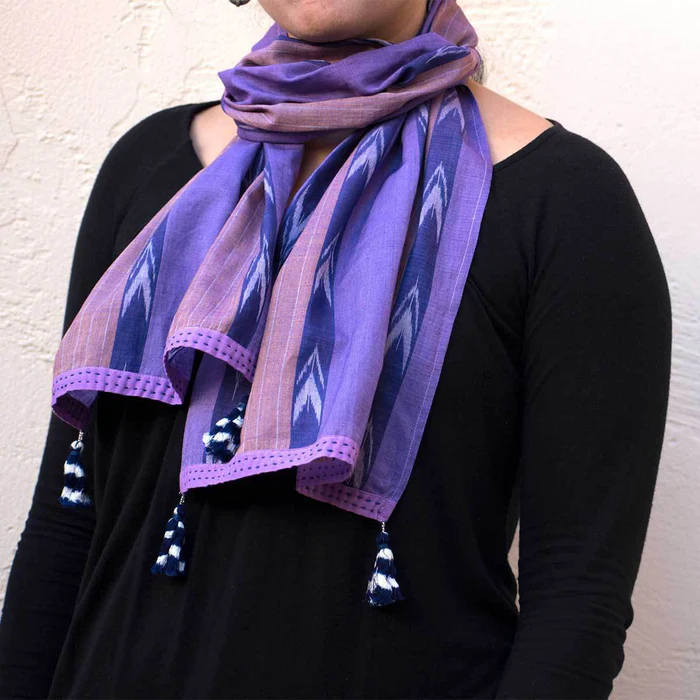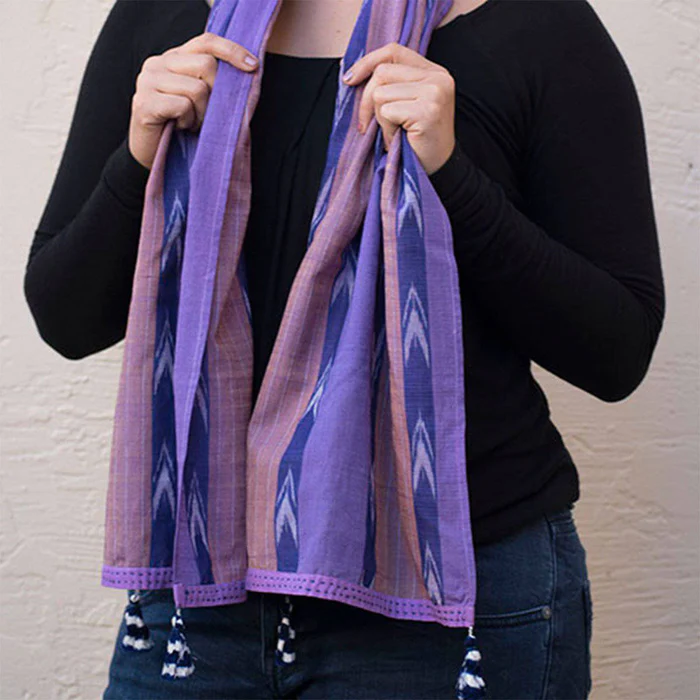Herb Stripes Ikat Neck Scarf/Hair Scarf
₹950.0
The butterfly is a flying flower, the flower a tethered butterfly.
Dual tone purple-and blush striped narrow Ikat scarf with contrasting lavender edging decorated with a few rows of running stitches.The corners of the scarf are adorned with intricately handmade tie-dye tassles. Wrap it over a denim and Tee or throw it over a dress, this scarf will definitely add class to your attire.
- from ‘The butterfly garden’ collection
- Handwoven in Odisha
- Warp Ikat
- Dyed in azo-free dyes
- 100% cotton
You must be logged in to post a review.
Q & A
Sustainability in the production of hand-woven stoles by female artisans can have several dimensions.
Firstly, it is important to consider the environmental impact of the production process. This can include the sourcing of raw materials such as cotton or silk, the use of natural dyes or eco-friendly synthetic dyes, and the disposal of any waste or byproducts generated during production.
Secondly, the social and economic impact on the female artisans must be taken into account. This can include fair wages, safe and healthy working conditions, and access to training and resources to improve their skills and productivity.
One way to ensure sustainability in the production of hand-woven stoles by female artisans is to support fair trade organizations and cooperatives that prioritize environmental and social responsibility. These organizations can provide a market for the stoles, ensuring that the artisans receive fair compensation for their work, while also implementing sustainable practices in their production processes.
Another way to support sustainability is to prioritize the use of natural and eco-friendly materials and dyes, which are less harmful to the environment and to the health of the artisans. Additionally, reducing waste and reusing materials can also contribute to sustainability.
Overall, sustainability in the production of hand-woven stoles by female artisans requires a holistic approach that takes into account the environmental, social, and economic impact of the production process. By supporting organizations and cooperatives that prioritize sustainability, we can contribute to a more just and equitable world.
General Inquiries
There are no inquiries yet.



















Reviews
There are no reviews yet.